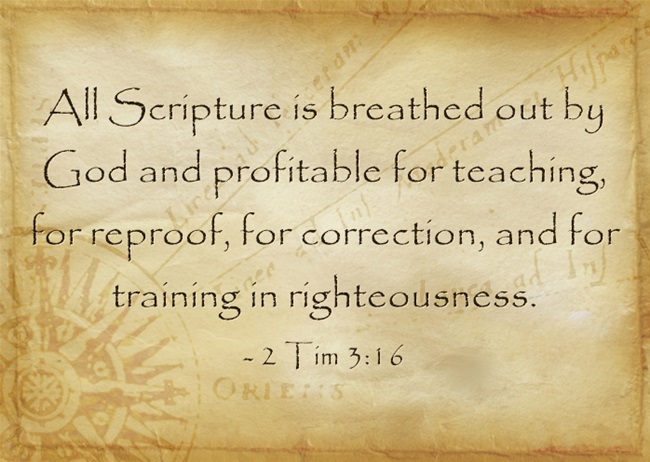(All the contents of this article is adapted or gleaned from the book, How To Get The Most From God’s Word by Dr John MacArthur, Jr.)
Revelation And Inspiration
Revelation is the message from God and Inspiration was the primary method of delivering that message to mankind. Inspiration is the act of the Holy Spirit in revealing to human writers the message that God intended to comprise the Bible. The inspiration was not only in concepts and in thoughts but also in the very words.
1 Cor 2:13. We also speak, not in words which man’s wisdom teaches but which the Holy Spirit teaches.
1 Pet 1:10-11 NLT. 10 This salvation was something even the prophets wanted to know more about when they prophesied about this gracious salvation prepared for you. 11 They wondered what time or situation the Spirit of Christ within them was talking about when he told them in advance about Christ’s suffering and his great glory afterward.
From 1 Pet 1:10,11, it is amazing to note that when the apostles received the prophecy from God, they did not understand and they simply recorded what they were told.
How can the Bible be the Word of God and at the same time, for example, the words of Paul ? God formed the personality of the writer. God made Paul into the man He wanted him to be. God controlled his heredity and his environment. When the writer reached the point that God intended, God directed and controlled the free choice of the man so that he wrote down the very words of God. God literally selected the words out of each author’s own life, out of his personality, his vocabulary, and his emotions. The words were man’s words, but that man’s life had been so framed by God that they were God’s words as well. So we can say that Paul wrote Romans, and we can say God wrote it. Both statements are correct. 2 Sam 23:2.
2 Tim 3:16. ESV. 16 All Scripture is breathed out by God and profitable for teaching, for reproof, for correction, and for training in righteousness. Just like how God spoke out of His mouth and breathed the universe into existence (Psalms 33:6), God breathed the Bible into existence.
Canon
The word Canon means measuring rod or standard. It was Athanasius, Bishop of Alexandria who referred to the completed NT in AD 350 as the canon. The final choice of the 27 NT books were held up by Athanasius and other early church fathers.
The following were the tests used by the early church fathers in deciding the final canon of the NT.
- Was the book authored by an apostle or someone close to the apostle ?
- Did the content square off with apostolic doctrine ?
- Was the book widely read and used in the churches ?
- Was the book recognized and used by the next generations after the early church ? (Polycarp, Justin Martyr, Tertullian, Origen, Eusebius, Athanasius, Jerome and Augustine.)
As for the OT, Jewish tradition holds that the final compilers of the OT canon were part of the Great Synagogue, that school of scribes founded by Ezra after the Jews returned from captivity in Babylon. There were some apocryphal books not added into the OT canon because :
- They were written long after the canon was completed about 400 BC.
- None of these apocryphal books claim divine inspiration and some even openly disclaim it.
- They contain errors of fact and teach questionable ethics and doctrines. For example, the writings justify suicide and assassination and also teach praying for the dead.
Infallibility, Inerrancy And Authoritativeness
The Chicago Statement, drafted at a summit conference called in October 1978 by the International Council on Biblical Inerrancy to affirm the authority of Scripture, explained well with this statement :
“Infallible signifies the quality of neither misleading nor being misled and so safeguards in categorical terms the truth that Holy Scripture is a sure, safe, and reliable rule and guide in all matters. Similarly, inerrant signifies the quality of being free from all falsehood or mistake and so safeguard the truth that Holy Scripture is entirely true and trustworthy in all its assertions.”
If the Bible is infallible and inerrant, it must be the final word – the highest standard of authority – because it is God’s very Word.

